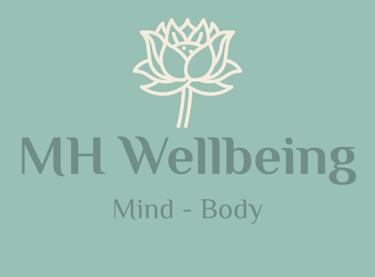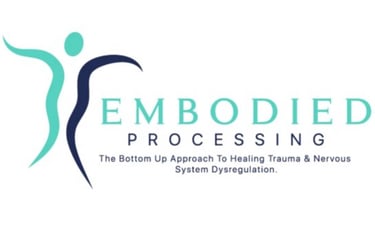Dealing with the narcissist in your life - You can regain the power
The most challenging time in my life was when I experienced narcissistic abuse. It led to an emotional and physical decline, yet I have learnt so much
Maria Hancock
4/20/20256 min read


How to Spot a Narcissist – and Get Your Power Back
This has been the trickiest blog post to write so far—probably because it came from the trickiest time of my life. But I truly believe that every challenge can bring growth and learning. So, I’m sharing what I’ve learnt in the hope that it might help someone else.
I was feeling upset and angry with a close family member and realised I could no longer push down my feelings. When I finally expressed how upset I was with their behaviour, they turned on me. After months of trying to mend things, I came to a heartbreaking realisation: they were a narcissist. I had to accept that there was no potential for a healthy, sustainable relationship. I realised I couldn’t change them but what I could change was my response. I could stop trying to control them and start the process of healing for myself.
When the Mask Slips
The narcissist in your life could be anyone—your parent, partner, sibling, colleague, or friend. You may not realise what’s happening until something triggers them. Often, they can seem perfectly reasonable, even charming, (not all narcissists are charming - there are different types). But once you challenge them or set a boundary, the mask starts to slip and you see who they really are.
In my case, I’d already noticed red flags:
I felt like I was always walking on eggshells.
They had a pattern of falling out with people and giving the silent treatment.
They were extremely selfish and I felt like their feelings always came first
They never took responsibility
They were always right—and it was their way or the highway.
For years, I’d been holding back my feelings and staying silent whenever they made me feel unwanted or like I didn’t matter. When they divorced, suddenly I was on their radar again and it felt like I finally mattered. But I now understand that I only mattered because I was needed. Narcissists can go hot and cold depending on what they need from you.
As time went on, that “need” started fading—and I was once again feeling insignificant. They began letting me down, ignoring my needs, and I became more and more upset and angry. They were talking of cutting off another close family member and I was scared I’d get the same treatment and tried to intervene. Eventually, I felt I had to speak up, and when I did, years of pent-up emotion came flooding out. I shouted. I said things in a way that wasn’t ideal—but I was finally standing up for myself.
And still, I believed we could talk it through, mend things, and come to a mutual understanding. I had no idea it would spiral into one of the worst years of my life.
The Aftermath
Their reaction was immediate and extreme. I was told I’d overreacted, that I was wrong to feel upset. I should never have felt hurt because, apparently, they “didn’t mean to upset me.” Suddenly, I was the one at fault, expected to apologise—not only to them, but to their partner too.
My version of events was denied, twisted, and completely rewritten. I wasn’t heard. There was no empathy. I saw a side of them I’d never seen before, and it left me shaken—literally.
Eventually, I was given an ultimatum: apologise for how I’d felt, accept full responsibility for everything, or be cut off. When I didn’t give in, I got the silent treatment.
Then I found out they were telling others a completely different version of events—one that made me out to be the bad person. I found myself having to defend myself to people. It was draining, heartbreaking, and felt like a deliberate attack from someone I’d trusted and who I felt should unconditionally love me.
I now understand that what I went through was emotional abuse. The trauma response I experienced was real. One of the hardest parts of this kind of abuse is how it undermines your sense of self. I started questioning everything—my memory, my emotions, my truth.
I spent countless hours trying to work out if I’d explained myself badly, or if there was a way I could fix things. But nothing I could have done would have changed the outcome. The circular thinking and anger led to sleepless nights, anxiety, loss of appetite, and weight loss. I was also dealing with losing my mum to Alzheimer’s and caring for two young children. I felt at my lowest point ever.
When You Realise You Have to Walk Away
Eventually, I saw that continuing to communicate with him was only opening the door to more abuse. He began sending abusive letters. Every letter confirmed what I already knew: he would never be interested in my feelings or my truth, he wanted to hurt me and blame me for everything. The relationship was not safe for me. I realised I was more scared of having a relationship with him than I was of losing the relationship.
But I felt guilty too. He was close family. I felt like maybe I’d started it, maybe I should make amends. But that takes two, and every letter full of blame gave me a strange sense of relief—relief that I was right about him, I was right to stand up for myself, that I was right to walk away.
Eventually, I sent a letter asking him not to contact me anymore. If there was ever a genuine reason to communicate, I asked that he do it through my husband’s email. That way, I had a layer of protection and a written record of everything.
I also asked others not to pass on messages from him, even if they thought they were helping. It was only prolonging the pain.
The Healing Process
Thankfully, I had a supportive husband, close friends, and a counsellor. The first step in my healing was having my story validated—by people who knew me, who believed me, and who told me I wasn’t going mad.
Eventually, I stopped repeating the story to others. I stopped ruminating. I realised that constantly talking about it was keeping it alive.
A few things really helped:
Writing him unsent letters – getting everything down on paper, then destroying it.
Self-compassion – I had every right to speak up. What happened wasn’t my fault.
Letting go – let go of any need to change him, mend the relationship or change anyone else’s feelings about it. I realised I am the only one to decide who is in my life.
Work towards forgiveness – Narcissism is often a result of abuse. As they say “Hurt people hurt people”. That doesn’t excuse their behaviour, but it helped me work towards forgiving him, replacing it with pity instead. Anger only hurts you, not the perpetrator.
Spotting a Narcissist
Here are some of the common signs I’ve come to understand:
They lack empathy and often dismiss your feelings.
They only give attention when they need something from you.
They go hot and cold, leaving you feeling unimportant.
They gaslight, twisting reality to make you doubt yourself.
They shift blame, never taking responsibility: “I wouldn’t have done that if you hadn’t…”
They use the silent treatment as punishment.
They lie and start smear campaigns to protect their image.
Some narcissists see themselves as constant victims, often blaming their childhood to avoid taking accountability.
Not all narcissists look or behave the same, but the impact on you is often the same—emotional exhaustion, self-doubt, confusion, and pain.
Getting Your Power Back
If you think you’re dealing with a narcissist, here’s what helped me:
✔ Recognise the red flags early.
✔ Set firm boundaries.
✔ Don’t argue or try to explain yourself—they will twist everything.
✔ Get support from people who validate you.
✔ Go ‘no contact’ or limit contact as much as possible.
✔ Communicate in writing only, if needed.
If they must remain in your life, limit your exposure, never trust them. And always trust your instincts.
In Closing
This experience nearly broke me—but it also woke me up. I learned to stop people-pleasing, to set boundaries, and to trust in my intuition. It taught me to feel so grateful for my friends and those who supported me. I learnt that I had the right to decide who deserved to be in my life, irrespective of family ties.
One thing that stuck with me is this: When someone shows you who they are, believe them. He showed me exactly who he was—and I finally stopped trying to manipulate him into the person I wanted him to be. I accepted who he was and realised he had no place in my life.
If you’re dealing with someone like this, please know: You are not alone. You’re not crazy. You have the right to walk away no matter who they are. And you absolutely can get your power back.
Have you experienced this kind of abuse? And was it from family also? I welcome your comments below.
The meaning behind the image - Many narcissists construct a false self-image to shield themselves from deep feelings of inadequacy, shame, or vulnerability and resist self-reflection.

MH Wellbeing, Maria Hancock MSc GQHP
Trauma-Informed Somatic Therapist, Hypnotherapist, Mindfulness Teacher, SIRPA Pain Recovery Practitioner
Specialist in stress, anxiety, chronic pain and other mind-body symptoms.
Local areas: Horley, Reigate, Redhill in Surrey and Crawley, Horsham, Copthorne in West Sussex. English Speaking Online Therapy.






